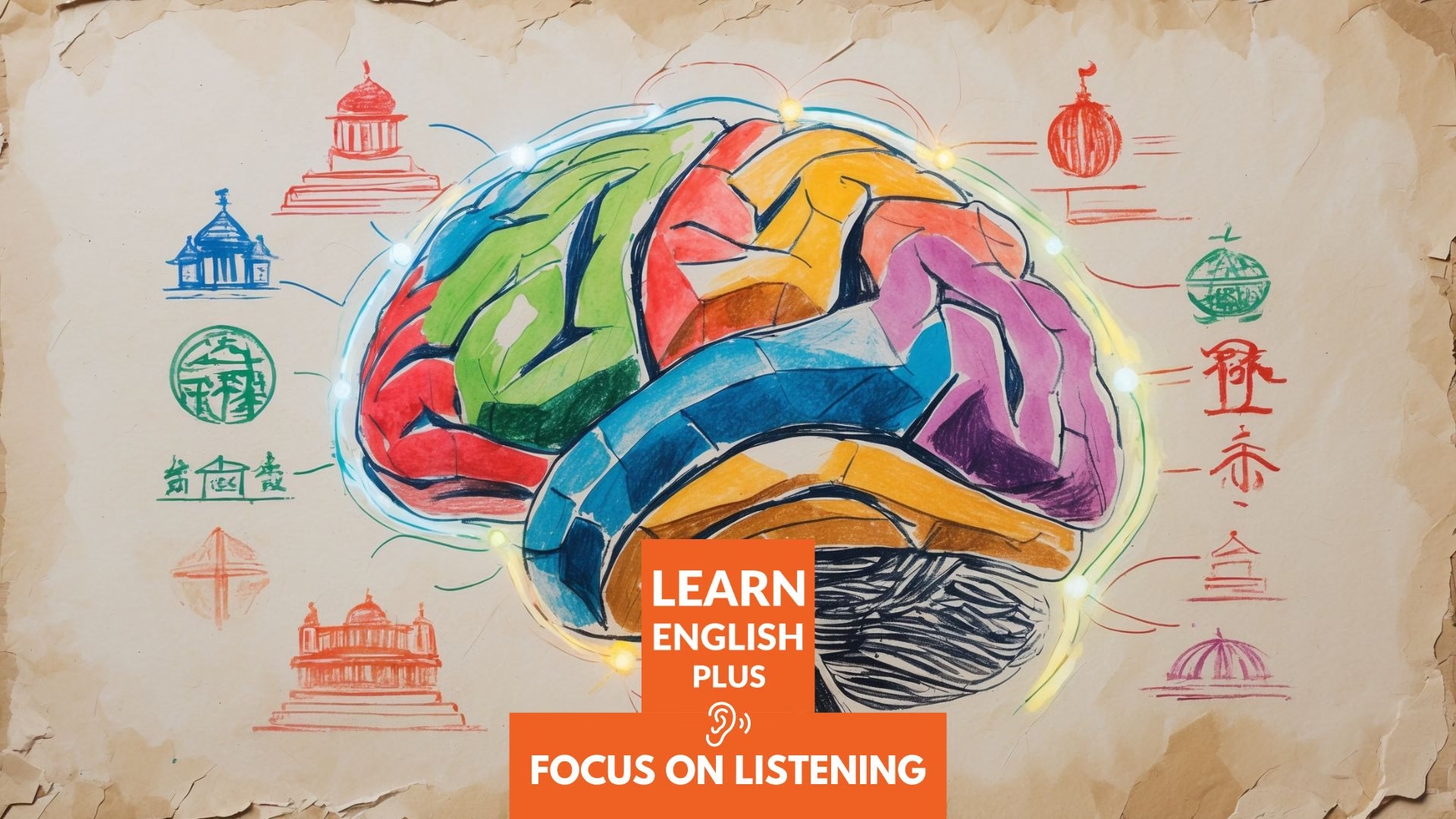Welcome to this listening practice session! Today, we’re going to explore the fascinating topic of multilingual education and its many benefits. Improving your listening skills is crucial for success in international exams like the SAT, TOEFL, and IELTS. This exercise is designed to help you practice active listening, understanding main ideas, identifying details, and inferring meaning – all essential skills for these exams.
Before we dive into the audio script, here are a few listening tips that can help you not just with this exercise, but also in your exam preparation:
- Listen Actively: Pay close attention to the speaker’s tone, intonation, and emphasis, as these can provide clues about the meaning.
- Predict and Anticipate: Before listening, think about the topic and try to anticipate what might be discussed. This can help you focus your listening.
- Focus on the Main Idea: Try to grasp the overall message of the audio before focusing on specific details.
- Take Notes (If Allowed): In some exam formats, you can take brief notes. Practice this skill by jotting down key points as you listen.
- Don’t Get Stuck on One Word: If you don’t understand a particular word, try to understand the meaning from the context. Don’t let it derail your overall comprehension.
Now, let’s listen to the script about the benefits of multilingual education. Remember to listen carefully!
Listening Script: Please don’t read the transcript before you listen and take the quiz.
In an increasingly interconnected world, the ability to speak more than one language is becoming less of a luxury and more of a necessity. While monolingualism was once the norm in many societies, the advantages of multilingual education are now widely recognized across various fields, from cognitive development to career opportunities. Today, we’ll delve into some of the key benefits that individuals and societies reap from embracing multilingualism.
One of the most significant advantages of multilingual education lies in its impact on cognitive abilities. Research has consistently shown that learning and using multiple languages can enhance cognitive flexibility, problem-solving skills, and even memory. When you learn a new language, your brain has to work in different ways, navigating new grammatical structures, vocabulary, and pronunciation rules. This mental workout strengthens cognitive functions, making multilingual individuals better at multitasking and switching between different tasks efficiently. Think of it like exercising different muscle groups in your brain – the more you challenge it, the stronger it becomes.
Furthermore, multilingualism fosters a deeper understanding and appreciation of different cultures. Language is intrinsically linked to culture, and by learning a new language, you gain insights into the values, customs, and perspectives of the people who speak it. This cross-cultural awareness is invaluable in today’s globalized world, where individuals from diverse backgrounds frequently interact in professional and personal settings. Multilingual individuals are often more open-minded, tolerant, and empathetic towards others, which can lead to stronger intercultural relationships and collaborations. Imagine being able to connect with people from different countries on a deeper level, understanding their nuances and appreciating their unique worldviews – that’s a powerful benefit of multilingualism.
Beyond cognitive and cultural advantages, multilingual education also opens up a wider array of academic and career opportunities. In today’s competitive job market, being proficient in multiple languages can give you a significant edge. Many industries, such as international business, tourism, translation, and diplomacy, actively seek individuals with multilingual skills. Moreover, access to education and research is often expanded for multilingual individuals, as they can engage with materials and resources in various languages. Whether you aspire to work for a multinational corporation or pursue academic research in a foreign country, multilingualism can be a key that unlocks those doors.
The benefits of multilingual education extend beyond the individual level to the societal level as well. In societies where multilingualism is encouraged and supported, there tends to be greater social cohesion and understanding between different linguistic groups. This can lead to a more inclusive and harmonious society where diverse perspectives are valued. Moreover, in a globalized economy, countries with a multilingual workforce are often better positioned to compete internationally, fostering innovation and economic growth. Think about countries like Switzerland or Canada, where multilingualism is deeply ingrained in their national identity and contributes to their economic and social prosperity.
Of course, the process of learning a new language can present challenges. It requires time, effort, and dedication. However, the long-term rewards of multilingualism far outweigh the initial difficulties. Embracing multilingual education is an investment in your cognitive abilities, your cultural understanding, and your future opportunities. It’s about broadening your horizons and connecting with the world in a more meaningful way.
In conclusion, the benefits of multilingual education are multifaceted and profound. From enhancing cognitive skills and fostering cultural understanding to expanding career prospects and promoting social cohesion, the advantages are undeniable. As the world continues to become more interconnected, the value of multilingualism will only continue to grow. So, whether you’re just starting your language learning journey or looking to further develop your existing skills, remember that every language you learn is a new window to the world.
Glossary
- Interconnected world: A world where people and things are closely linked and depend on each other. Usage in the script: “In an increasingly interconnected world…”
- Luxury and more of a necessity: Shifting from something desirable but not essential to something required or very important. Usage in the script: “…becoming less of a luxury and more of a necessity.”
- Widely recognized: Commonly accepted or acknowledged by many people. Usage in the script: “…the advantages of multilingual education are now widely recognized…”
- Delve into: To examine something carefully and thoroughly. Usage in the script: “Today, we’ll delve into some of the key benefits…”
- Cognitive flexibility: The ability to switch between different tasks or ways of thinking easily. Usage in the script: “…can enhance cognitive flexibility…”
- Intrinsically linked: Belonging naturally; essential. Usage in the script: “Language is intrinsically linked to culture…”
- Invaluable: Extremely useful or precious; having immense value. Usage in the script: “This cross-cultural awareness is invaluable…”
- Globalized world: A world where different parts of the world are becoming increasingly interconnected and interdependent. Usage in the script: “…in today’s globalized world…”
- Proficient in: Skilled and competent in something, especially a language. Usage in the script: “In today’s competitive job market, being proficient in multiple languages…”
- Significant edge: A considerable advantage over others. Usage in the script: “…can give you a significant edge.”
- Multifaceted and profound: Having many different aspects or features, and very great or intense. Usage in the script: “In conclusion, the benefits of multilingual education are multifaceted and profound.”
- Broadening your horizons: Expanding your knowledge, understanding, and experiences. Usage in the script: “It’s about broadening your horizons…”










0 Comments